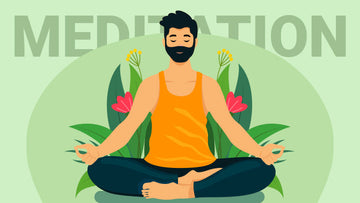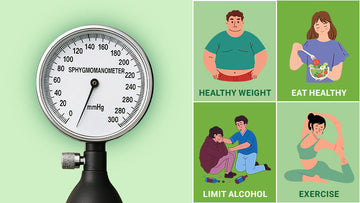In our fast‑paced, always‑connected world, the practice of meditation offers a quiet refuge — a moment to breathe, pause, and re‑center. Though ancient, meditation is backed by modern science as a powerful tool for emotional, mental, and physical well‑being. In this post, we’ll explore what meditation is, what benefits it offers, how to begin, and tips for making it sustainable.
What Is Meditation?
Meditation is a practice of training the mind, often by focusing attention, observing thoughts nonjudgmentally, and cultivating awareness of the present moment.
Some common elements include:
-
A quiet, comfortable environment
-
A stable posture (sitting, lying down,)
-
A focal object (breath, mantra, body sensations, sound)
-
Noticing when the mind wanders, and gently returning to the focus
There are many styles: mindfulness meditation, loving‑kindness , focused attention, body scan, transcendental, and more.
Though often with spiritual roots, meditation need not be religious. For many, it is a secular practice of self‑care, mental training, and inner awareness.
The Science‑Backed Benefits of Meditation
Research has grown significantly over recent decades, and studies point to a broad spectrum of benefits — emotional, cognitive, physiological. Below are some of the most compelling:
1. Stress Reduction
One of the most cited benefits: meditation helps reduce stress and lower physiological markers like cortisol and heart rate.
2. Anxiety Control & Emotional Health
Meditation can ease symptoms of anxiety, generalized anxiety disorder, and depressive states. In some trials, its effects are comparable to antidepressants. It also helps in reducing negative thinking patterns and promoting a more positive outlook.
3. Improved Focus, Attention & Memory
Even brief sessions (e.g. ~10 minutes) can enhance attention and cognitive performance.
Meditation helps in increasing working memory, mental clarity, and resisting distractions.
4. Better Self‑Awareness & Emotion Regulation
As you learn to observe your thoughts and emotions, you begin to recognize unhelpful patterns. This awareness helps you respond more consciously instead of reacting impulsively.
5. Physical Health & Wellbeing
-
Lowered blood pressure and heart rate (via relaxation response)
-
Improved sleep quality and reduced insomnia
-
Pain management and coping with chronic pain conditions
-
Reduced inflammation and bolstered immune function (some preliminary findings)
-
Possible structural brain changes (gray matter, connectivity) in long‑term meditators
6. Slower Cognitive Aging (Emerging Evidence)
A recent study suggests that advanced meditators may exhibit features of “reversed brain aging” (on average ~5.9 years) via deep yogic meditation practices.
Tips to Make It Sustainable
-
Be consistent, not perfect — Daily short sessions beat irregular long ones.
-
Use guides or apps for support (audio guided sessions, timers, reminders).
-
Group or teacher support helps deepen practice and maintain motivation.
-
Integrate informal meditation into daily life (while walking, eating, waiting).
-
Start small — 5 minutes is enough to begin.
Final Thoughts
Meditation is more than a stress management trick. It’s a path toward deeper self‑understanding, emotional resilience, and holistic well‑being. The scientific evidence is promising, and many people discover that with patience and consistency, meditation becomes a lifelong companion.






